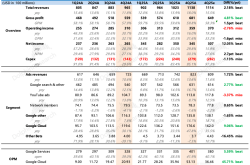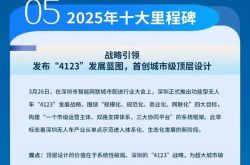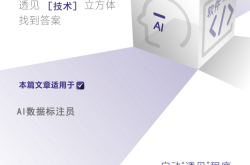Tesla Stirs the Market: Will Lei Jun "Rise to the Challenge"?
![]() 01/14 2025
01/14 2025
![]() 537
537
Model Y: A Timeless Classic or a New Dawn?
Tesla has once again "discreetly" updated its official website with information on its latest model.
On January 10, Tesla China announced the launch of the new Model Y, priced starting at RMB 263,500. Specifically, the new Model Y Rear-Wheel Drive version commences at RMB 263,500, while the Long Range All-Wheel Drive version starts at RMB 303,500. The latest iteration of Model Y boasts an extended maximum range of 719 kilometers.
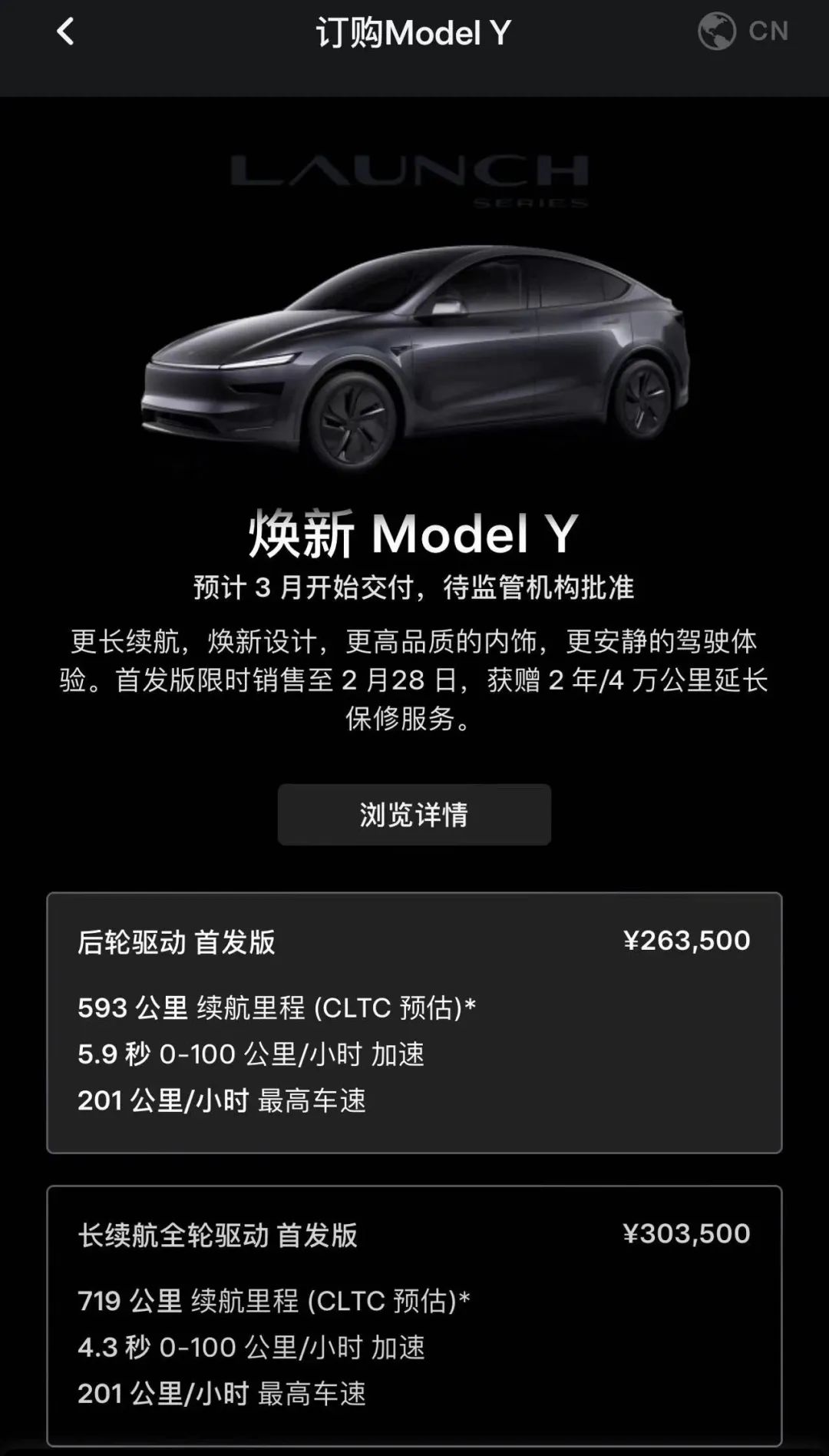
Image Source: Tesla APP
Prior to the introduction of the new Model Y, the previous version had been on the market for five years and had been competing in the Chinese market for four years. With the unveiling of the new Model Y, the older version has been removed from the official website, though a limited number of inventory vehicles can still be ordered through sales channels.
Despite Tesla's global annual deliveries experiencing a slight decline for the first time last year, its sales in China reached an all-time high. Data reveals that in 2024, Tesla delivered a total of 1.7892 million vehicles globally, marking a 1.1% decrease from the previous year, with 1.7041 million being Model 3/Y. In the Chinese market, Tesla sold 657,000 vehicles, up 8.8% year-on-year, of which 480,000 were Model Y alone.
Owing to its impressive sales performance, Model Y has emerged as the benchmark for numerous automakers in the pure electric vehicle market.
The new Model Y has undergone enhancements in its appearance, cabin, range, and more, according to relevant information. The first edition will be available on a limited-time basis until February 28, inclusive of a 2-year/40,000-kilometer extended warranty service, which can be combined with five years of interest-free financing. Pending regulatory approval, the new vehicle is expected to commence deliveries in March.
Tesla's official WeChat public account features the slogan "Renewed Model Y, Raising the Bar." Lei Jun, the founder, chairman, and CEO of Xiaomi, retweeted Tesla's Weibo post, simply remarking, "Good."
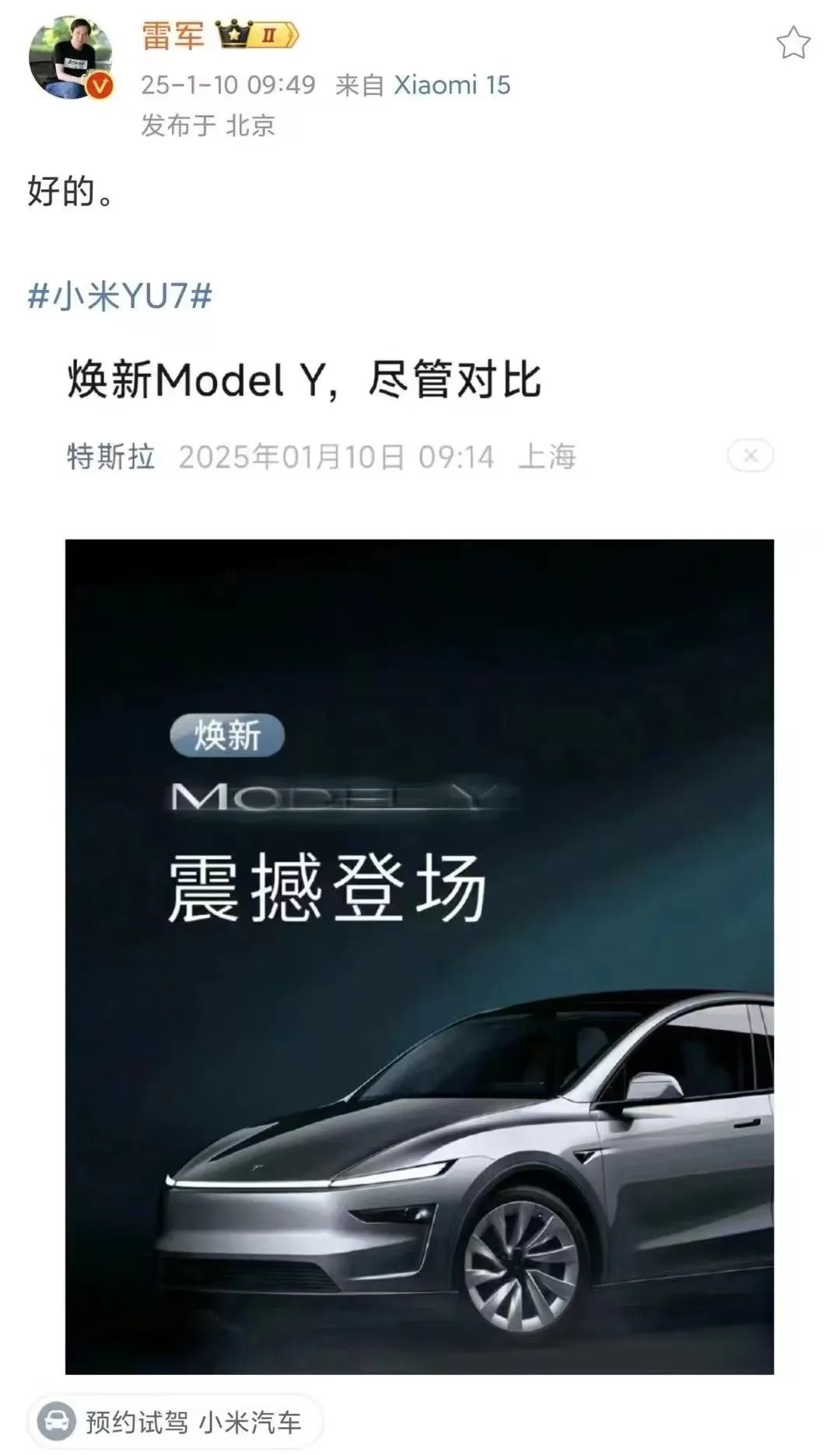
Image Source: Sina Weibo @Lei Jun
As per plans, Xiaomi's second model and first SUV, the YU7, is scheduled for launch around June this year, positioned as a mid-to-large SUV. On December 9, 2024, Xiaomi YU7 received certification from the Ministry of Industry and Information Technology. This model is directly targeting Tesla Model Y as its main competitor.
This isn't the first time Xiaomi Automobile has benchmarked Tesla. During the launch event of Xiaomi SU7, Lei Jun also repeatedly compared Tesla's models in terms of performance, price, and other aspects.
It's worth noting that XPeng Motors also released official images of its new SUV model G7 on January 9. XPeng Motors stated on social media, "XPeng G7 may be the most competitive SUV in the 250,000 yuan price range this year, offering high design standards, fully equipped AI, comprehensive technological leadership, excellent spatial performance, and is ideal for family users."
In fact, prior to Xiaomi YU7 and XPeng G7, numerous other models, including NIO's second brand LeDao's first model L60, Zeekr's new SUV Zeekr 7X, Huawei AITO's first pure electric coupe SUV AITO Askev R7, AITO's new SUV AITO 07, Landwind Zhiyin, and SAIC Motor's newly upgraded Zhiji LS6, have all explicitly stated their intention to compete with Model Y.
"Tesla is an inevitable topic for all new energy vehicle enterprises," Lu Fang, CEO of Landwind Automobile, told China News Weekly. He noted that Tesla Model Y is currently the benchmark in the market and will naturally be tracked, learned from, and eventually surpassed by newcomers.
Tesla Model Y was born in Tesla's Shanghai Gigafactory, which has now been officially operational for five years. On January 7, Tesla Asia officially posted on social media that five years ago today, the first batch of Model 3 vehicles produced at the Shanghai Gigafactory were officially delivered. Over the past five years, this factory has achieved numerous milestones. In 2024 alone, the Shanghai Gigafactory rolled off its 3 millionth vehicle, exported its 1 millionth vehicle to overseas markets, and delivered over 916,000 vehicles throughout the year, accounting for half of Tesla's global deliveries.
Musk subsequently retweeted the post with the comment, "Well done."
"The King of Competition" Returns
Whether in terms of price or technology, Tesla is widely regarded as the "King of Competition" in the automotive industry.
Tesla is one of the pioneers of price wars in the automotive sector. Over the years, the entry-level price of the locally produced Tesla Model Y has cumulatively decreased by nearly RMB 100,000, while product performance has continued to improve. Tesla China explained the price adjustment as adhering to the principle of "cost pricing" and striving to lower the entry threshold for smart electric vehicles globally.
When the locally produced Tesla Model Y was first announced on January 1, 2021, its starting price was RMB 339,900. Today, the new Model Y Rear-Wheel Drive version commences at only RMB 263,500. Although vehicle configurations differ, the discount is undeniably substantial.
Currently, the price war in the Chinese automotive market is in full swing, and Model Y still maintains favorable policies in terms of loan terms and zero-interest financing periods, ensuring it remains highly competitive.
However, the pressure exerted by the price war on the industry is also becoming increasingly apparent. According to data provided by the China Passenger Car Association, the profit of the automotive industry from January to November 2024 decreased by 7.3% year-on-year, with the profit rate standing at 4.4%, which is still lower compared to the average profit rate of 6.1% for downstream industrial enterprises.
As per plans, Tesla FSD is expected to enter the Chinese market in 2025, which will be a cornerstone of Tesla's core competitiveness.
In Musk's own words, Tesla is not merely an electric vehicle manufacturer but a trailblazer in the field of AI-based autonomous driving.
Nvidia CEO Jensen Huang has also previously lauded Tesla's FSD, which is built on AI supercomputers. "Tesla is the global leader in autonomous vehicles. One truly revolutionary aspect of Tesla's full self-driving car is that it is an end-to-end generative model," said Huang. "It learns how to drive autonomously by analyzing videos and utilizes generative AI technology to predict paths and navigate the vehicle. This technology is truly revolutionary, and Tesla's achievements are nothing short of incredible."
According to incomplete statistics, in 2024 alone, Tesla updated over 100 significant features for the S3XY models through six major versions of OTA remote software updates, encompassing city-level lane navigation, automatic parking upgrades, advanced smart summon, and prevention of "dooring" accidents. Owners do not need to pay additional upgrade fees or visit dealerships; instead, they can enjoy "driving a new car every month" through OTA remote software updates from the comfort of their homes.
Moreover, favorable policies continue to be rolled out. The "Action Plan for Reducing Costs, Improving Quality, and Increasing Efficiency in Transportation and Logistics" issued by the two ministries emphasized the need to expedite the pilot implementation of access and traffic for intelligent and connected (autonomous) vehicles. Simultaneously, Tesla has also obtained the "Automobile Privacy Protection" logo authorization from the China Association of Automobile Manufacturers, becoming one of the first batch of automakers to pass the evaluation. The support of these policies and regulations has undoubtedly cleared the final hurdles for Tesla FSD to enter the Chinese market.
It's worth noting that the continuous upgrades of Tesla FSD and rumors of its entry into China have intensified the race for intelligent driving technology. Currently, multiple intelligent driving-related enterprises, such as Horizon Robotics, Black Sesame Technologies, Momenta, Pony.ai, among others, have either completed their listing or submitted listing applications on the Hong Kong Stock Exchange or Nasdaq. McKinsey even predicts that by 2030, China may emerge as the world's largest autonomous driving market, with new vehicle sales and mobility services related to autonomous driving generating over USD 500 billion in revenue.

